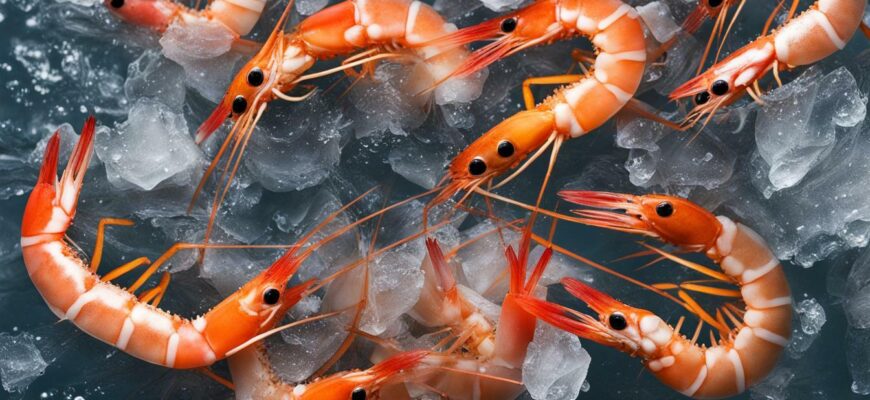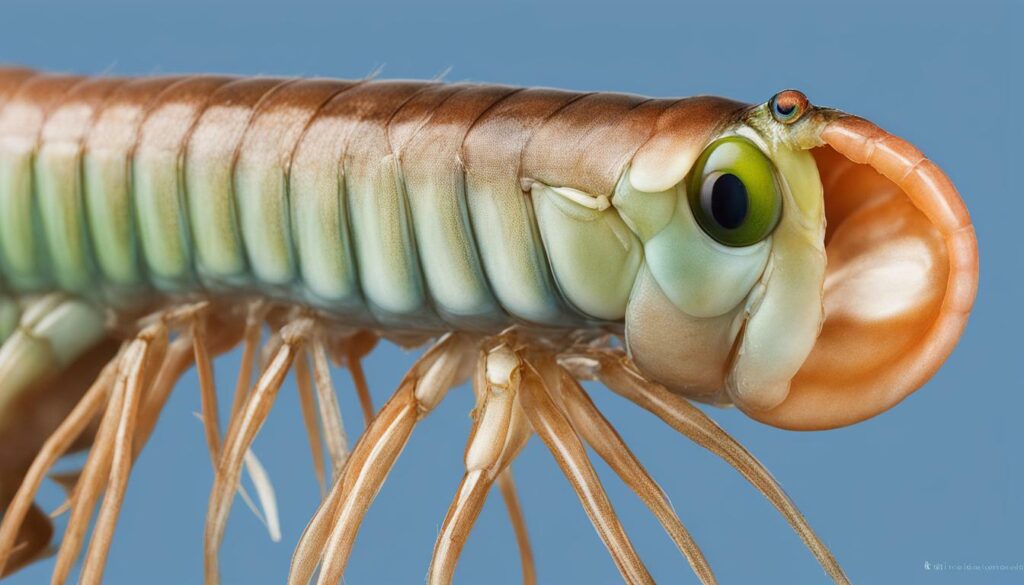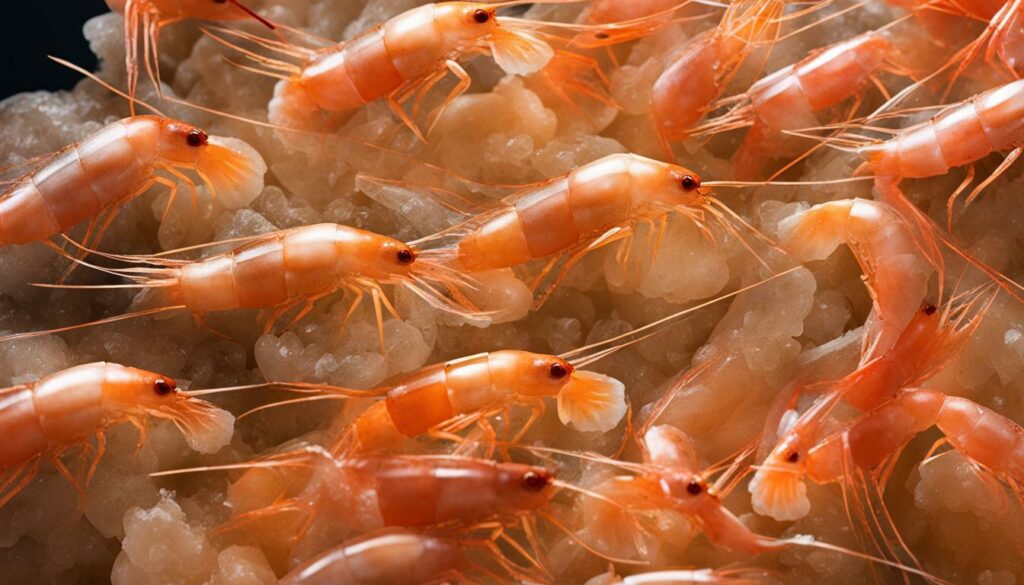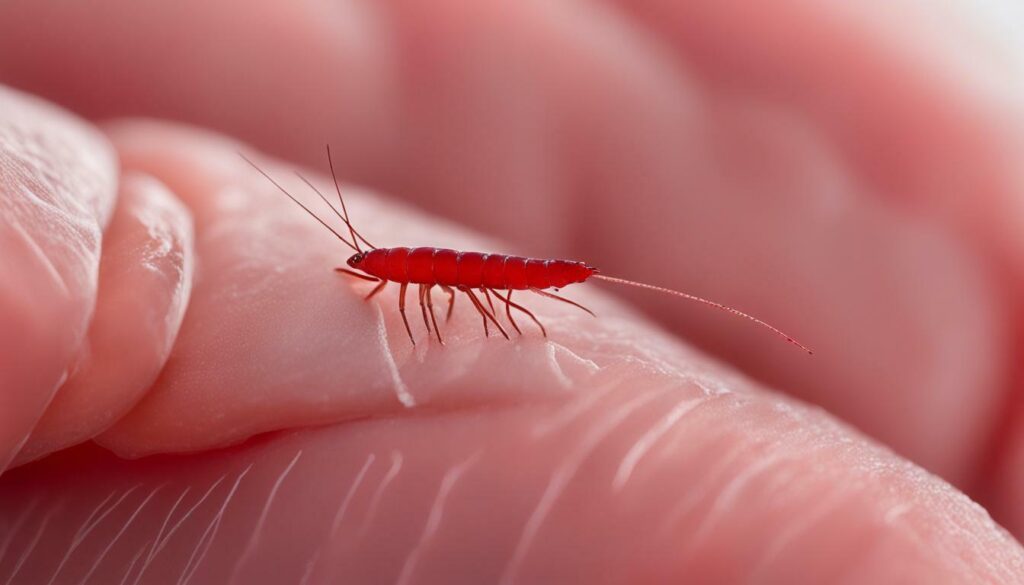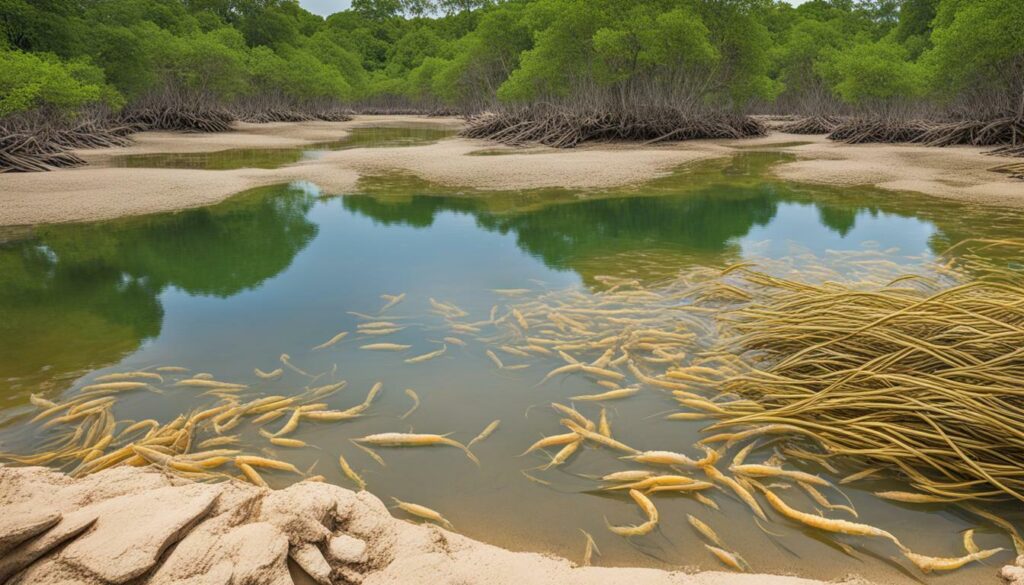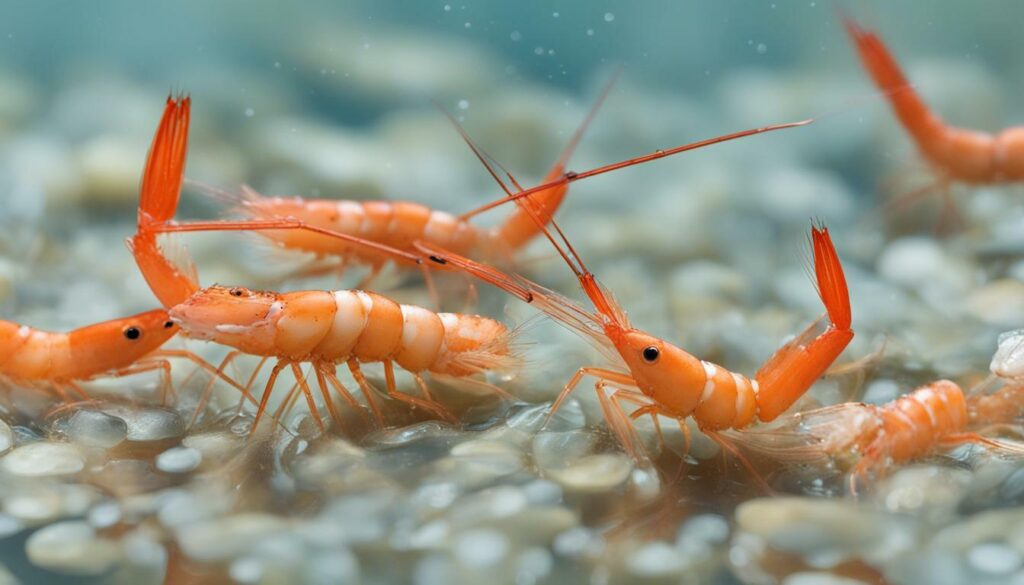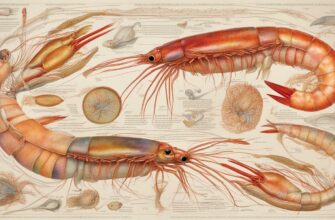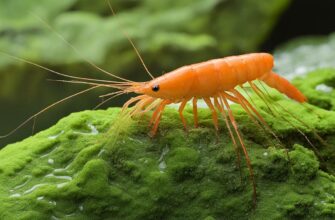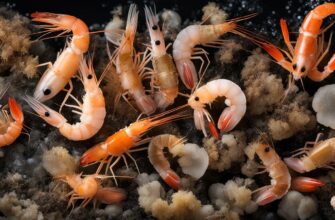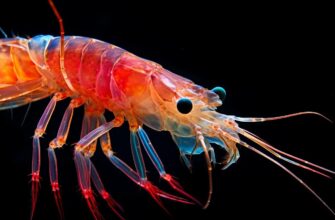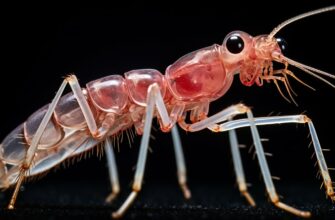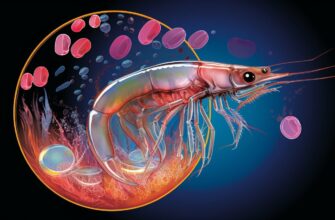Shrimp are fascinating creatures that come in many shapes and sizes. They can be found in oceans, rivers, and even in some freshwater streams. But one question that often comes to mind is, “Do shrimp bite?”.
Shrimp may look harmless, but they are known to have a biting behavior. However, their biting habits are not well understood, and many people may wonder if they can cause harm to humans.
In this article, we will dive deeper into the biting behavior of shrimp and examine whether they have the ability to hurt humans. We will explore their mouth structure, pinching tendencies, and the potential harm that shrimp bites can cause. Additionally, we will discuss the different factors that can influence the biting behavior of shrimp, and how observing them in their natural habitat can help us gain a better understanding of their behavior.
- Key Takeaways:
- Understanding Shrimp’s Mouth Structure and Teeth
- Shrimp Pinching: Myth or Reality?
- The Potential Harm of Shrimp Bites
- Factors Influencing Shrimp Biting Behavior
- Observing Shrimp in their Natural Habitat
- Conclusion
- Stay Safe around Shrimp
- FAQ
- Q: Do shrimp bite?
- Q: Do shrimp have teeth?
- Q: Are shrimp aggressive?
- Q: Can shrimp hurt you?
- Q: What factors influence shrimp biting behavior?
- Q: How can I observe shrimp in their natural habitat?
- Q: Do shrimp bite frequently?
- Q: In conclusion, do shrimp bite?
Key Takeaways:
- Shrimp have a biting behavior.
- Shrimp bites can potentially harm humans.
- Observing shrimp in their natural habitat can provide insights into their biting habits.
Understanding Shrimp’s Mouth Structure and Teeth
When it comes to understanding whether shrimp bite or not, it’s important to examine their mouth structure and teeth. Unlike humans, shrimp do not have jaws or teeth in the traditional sense. Instead, they have a set of appendages near their mouth called maxillipeds that they use to capture and manipulate their food.
These maxillipeds work in conjunction with the shrimp’s mandibles, which are located inside their mouth. The mandibles are used to grind food into smaller pieces, allowing the shrimp to digest it more easily.
It’s worth noting that while shrimp don’t have teeth, some species do have a small, sharp protrusion on their maxillipeds that can help them grasp their prey. However, this isn’t quite the same as biting, as the shrimp isn’t actually using their mouth to inflict damage.
Overall, while shrimp don’t have teeth or jaws in the traditional sense, they do have specialized appendages that help them capture and manipulate their food.
Shrimp Pinching: Myth or Reality?
There’s a common misconception that shrimp have the ability to pinch, similar to lobsters or crabs. However, this is actually a myth.
Shrimp do not have claws or pincers like other crustaceans. Instead, they have small legs and antennae that they use for movement and sensing their environment. While they may use their legs to try and defend themselves if they feel threatened, their legs are not strong enough to cause any harm to humans.
Additionally, while shrimp may display aggressive behavior towards their own kind, they generally do not show any aggression towards humans. In fact, they are often timid and will try to avoid contact with people.
Fun Fact: Shrimp are often used as a food source for larger fish, so it’s actually in their best interest to avoid confrontation and hide when a potential predator is nearby.
Overall, the idea of shrimp pinching or being aggressive towards humans is simply a myth. As long as they are handled with care and caution, shrimp are not a threat and can be enjoyed as a delicious seafood option.
The Potential Harm of Shrimp Bites
While shrimp bites are not typically dangerous, they can still cause harm to those who are allergic to shellfish. In some cases, an allergic reaction to shrimp can be severe and even life-threatening. If you are uncertain about your sensitivity to shellfish, it is wise to avoid consuming shrimp, as well as coming into contact with them.
Additionally, shrimp have been known to carry bacteria such as Vibrio, which can cause food poisoning if ingested. This is why it is important to handle and cook shrimp properly before eating.
It is also worth noting that shrimp are not known to purposely attack humans. They may bite as a defense mechanism if they feel threatened, but this is rare and can generally be avoided by maintaining a safe distance and respecting their space.
Remember to always handle shrimp with care and be aware of your own sensitivities when it comes to consuming or handling shellfish.
Factors Influencing Shrimp Biting Behavior
Shrimp, like all creatures, can have a range of behaviors when it comes to biting. Understanding the factors that influence their biting behavior can help us predict when and how they are likely to bite. Here are some of the main factors that can impact a shrimp’s biting behavior:
- Environmental factors: Shrimp may be more likely to bite in certain environmental conditions, such as low oxygen levels or warmer temperatures. In these situations, they may be more aggressive in their search for food.
- Hunger: Like most living things, shrimp are more likely to bite when they are hungry. If they have not eaten in a while, they may be more aggressive and willing to take risks to find food.
- Size and species: The size and species of a shrimp can also impact its biting behavior. Larger shrimp may be more likely to bite, especially if they are in competition with other shrimp for food.
- Age: Younger shrimp may be more curious and willing to explore their environment, which could lead them to bite more frequently.
It’s also important to note that different shrimp species may have their own unique biting habits and behaviors. For example, some species may be more aggressive and prone to biting, while others may be more passive and less likely to bite.
Observing shrimp in their natural habitat can also provide valuable insights into their biting behavior. By watching how they interact with their environment and with each other, we can gain a better understanding of when and why they might bite.
Observing Shrimp in their Natural Habitat
Observing shrimp in their natural habitat can provide valuable insights into their biting habits and behavior. As mentioned earlier, shrimp are scavengers and will often feed on anything they can find.
In their natural habitat, shrimp can be found in different environments such as estuaries, rivers, and even oceans. Depending on the species, they may prefer different conditions such as warm or cooler waters, sandy or rocky bottoms, and so on.
One way to observe shrimp in their natural habitat is through snorkeling or scuba diving. By observing them in their natural environment, you can see how they interact with their surroundings and other marine life.
It’s also important to note that some shrimp species are nocturnal, meaning they are most active at night. Therefore, observing them during the day may not provide a full picture of their behavior.
Overall, observing shrimp in their natural habitat can provide valuable insights into their behavior and help us better understand their biting habits. So, next time you’re near a body of water where shrimp can be found, take some time to observe them in their natural environment!
Conclusion
After exploring the biting behavior of shrimp, examining their mouth structure, and studying their natural habitat, we can conclusively answer the question, “Do shrimp bite?” with a resounding yes. Although they may not have teeth or jaws, shrimp use their powerful front appendages to grasp and tear apart their food, including potential prey or humans who may come into contact with them.
While shrimp bites may not be lethal, they can still cause harm, such as infection or allergic reactions. It is crucial to handle shrimp with care and avoid provoking them in any way. Additionally, environmental factors such as temperature and hunger can influence their biting behavior.
Stay Safe around Shrimp
When observing shrimp in their natural habitat or handling them, it is important to take appropriate precautions to avoid getting bitten. Wear protective gear such as gloves or use a net to handle them from a safe distance. Avoid handling them if you have any open cuts or wounds. If you do get bitten, clean the wound thoroughly with soap and water, and seek medical attention if necessary.
With these precautions in mind, you can safely appreciate the unique and fascinating biting behavior of shrimp.
FAQ
Q: Do shrimp bite?
A: Yes, shrimp do have the ability to bite. However, they typically only bite when they feel threatened or provoked.
Q: Do shrimp have teeth?
A: No, shrimp do not have teeth. Instead, they have a hard exoskeleton and use their front pincers to grasp and tear their food.
Q: Are shrimp aggressive?
A: Shrimp are generally not aggressive creatures. They prefer to avoid conflict and will only display aggressive behavior if they feel threatened.
Q: Can shrimp hurt you?
A: While shrimp bites can be painful, they are generally harmless and pose no serious threat to humans. However, individuals with shellfish allergies should exercise caution.
Q: What factors influence shrimp biting behavior?
A: Several factors can influence the biting behavior of shrimp, including hunger, environmental conditions, and the presence of predators.
Q: How can I observe shrimp in their natural habitat?
A: To observe shrimp in their natural habitat, you can visit coastal areas, tide pools, or aquariums that showcase marine life. It’s important to maintain a respectful distance and avoid disturbing their environment.
Q: Do shrimp bite frequently?
A: Shrimp tend to bite when they feel threatened or provoked, so the frequency of biting can vary depending on the situation and the individual shrimp’s behavior.
Q: In conclusion, do shrimp bite?
A: Yes, shrimp do have the ability to bite, but they typically only do so when they perceive a threat. Overall, shrimp bites are not a significant concern for most people.

